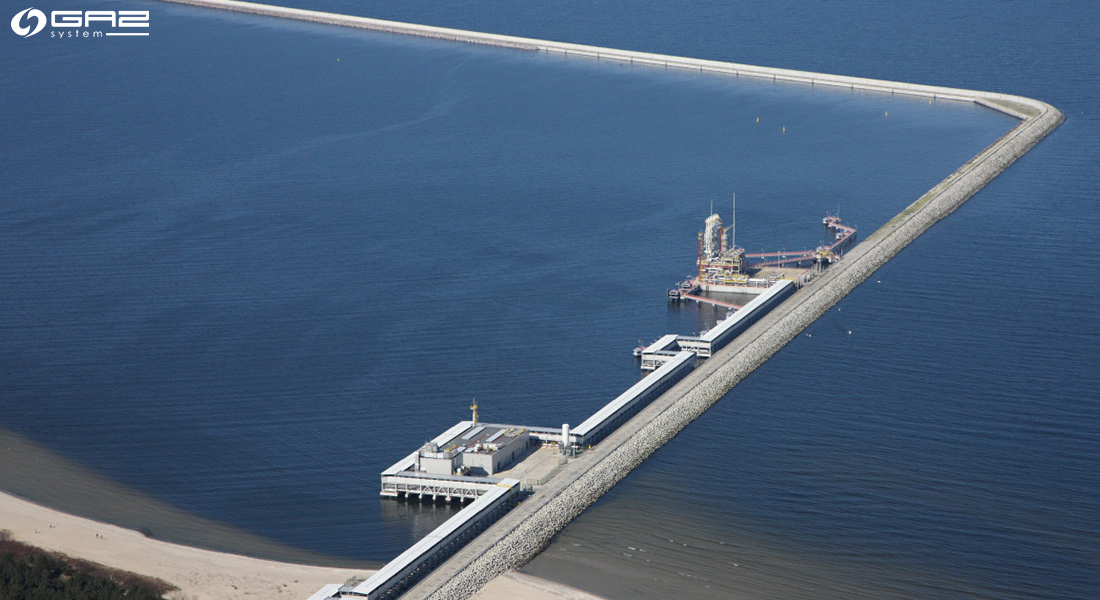The protection of critical energy infrastructure is still a hot topic in the public debate. However, energy security is determined not only by pipelines or power plants, but also by ports and terminals. The LNG Terminal in Świnoujście is important from the point of view of the state, so many services are protecting it. Poland makes sure its gas gateway to the world is heavily guarded – writes Marcin Karwowski, editor at BiznesAlert.pl.
The fate of the Nord Stream 1 and 2 pipelines, the Balticconector or the fiber optic cables on the seabed has made it clear how vulnerable the energy infrastructure is. However, not all of it runs under water, facilities such as the LNG terminal in Świnoujście are crucial in the context of the state’s energy security as well. The terminal is vulnerable to terrorist acts or infiltration by foreign assets. According to the current regulations, the burden of protection lies not only on the company, but also on the law enforcement. In order to ensure the protection of the terminal, Gaz-System, the infrastructure operator, cooperates mainly with the Border Guard (SG), the police, the Territorial Defense Forces (WOT) and the State Fire Service (PSP).
Always ready for action
The primary role of the police and SG is to protect the terminal area from unauthorized intrusion. It is within the competence of both services to carry out document checks, which makes it difficult for unauthorized persons to enter the facility. They are allowed to use their auhority in case they suspect someone of trying to trespass. They can conduct a more detailed inspection or detain the suspect. It is worth remembering that both formations have the authority, technical facilities and trained officers to detect any attempts at bringing dangerous items, including explosives.
Gaz-System has allocated temporary premises for the use of Border Guards. Ultimately, at the terminal, a base of the Marine Unit of the Border Guard (MOSG) and a berth for mooring service units are to be built. This will make a quick response possible, and allow SG to provide more efficient protection of the terminal from the sea. The basis for such cooperation is an agreement signed in September between the Unit and the terminal operator.
Soldiers shoulder to shoulder with security guards
At the end of July, Gaz-System signed an agreement with the command of the Territorial Defense Forces. They will cooperate in the field of training, interaction and building state resilience. Thanks to such cooperation, WOT can share their knowledge and experience with the company’s employees, including security. Joint exercises make it possible, in the event of a threat, to cooperate more effectively in its mobilization. According to the company’s website, WOT will train employees in the field of basic military training, the functioning of the defense system and cooperation with the Polish Army. The agreement also provides a basis for the exchange of information on threats. This is part of WOT’s job, as the formation is responsible for building universal readiness for defending Poland.
Guns and more in defence of the terminal
In August, Gaz-System signed a contract with the State Fire Service (PSP). As in previous cases, the nature of cooperation has been formalised and extended thanks to the document. This is important because the fire service, unlike the other three, may be forced to intervene not only in the case of third-party interference. In the event of a fire at the LNG terminal, the consequences could be catastrophic. Quick and efficient reaction is key. As part of the signed agreement, PSP has knowledge of the structure and location of the Gaz-System facilities. Both sides organize and participate in fire-fighting exercises, and the press spokespersons of the operator and PSP are supposed to cooperate in the event of a crisis situation affecting the gas infrastructure of Gaz-System.
Gaz-System knows how to take care of itself
Gaz-System relies not only on state protection. The facility is protected by a security company and every person who wants to enter must show a pass. The security personnel has the right to check the identity of the persons present in the protected area. In addition, in the event of a threat, they can use direct coercive measures, including weapons. The security guards cooperate with the services to ensure the safety of the LNG terminal and its staff.









